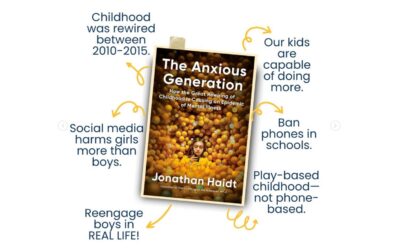Over the past year, I’ve read countless books and articles about screen time. You’ll notice that when you study one topic in depth, you start to become familiar with experts on that topic because their name will pop up in just about every book.
On the topic of screen time, the name Dr. Dimitri Christakis frequently appears. Christakis is a pediatrician at Seattle Children’s Hospital in Seattle and a professor in the School of Medicine at University of Washington. He has spent years researching how a child’s early experiences affect the brain.
I was fortunate enough to hear Dr. Christakis speak last week about screen time and the developing brain. Not only is a well-known researcher, but he’s an incredible speaker. He is so knowledgeable and relatable.
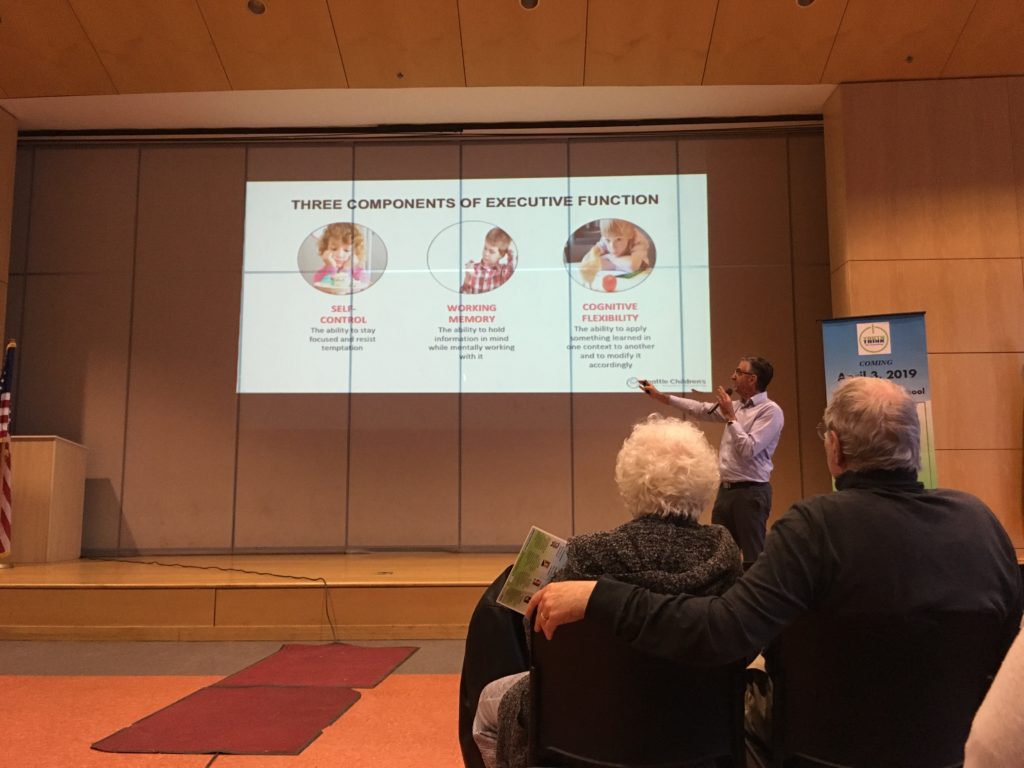
My Favorite Takeaways:
- There are three components of executive function in the brain: self-control, working memory, and cognitive flexibility. In his research, self-control is the most important. Self-control as children leads to better functioning as adults.
- Little kids need developmental experiences to learn emotional cues and real world dimensional skills.
- Life changed on April 3rd, 2010 when Apple introduced the iPad. As you may know, Steve Job’s kids hadn’t ever used it. Inventors often have more insight about the real power behind the tool they created.
- Digital addiction is defined as a compulsion to use all things digital.
- He talked about the dopamine reward pathway and how we are rewarded by our phones. If you reward behavior, you encourage it.
- It’s intentional for video games to be addictive. They are free to play at first (low barrier to entry), then they become more challenging. This aligns with Vgotsky’s Zone of Proximal Development which translates to the psychology of optimal experience when playing a video game. Anxiety (too hard) —->Flow Channel (just challenging enough/just right)——->Boredom (too easy, lose interest)
- If you or your child are at high risk for behavior addictions, then you need to be even more mindful of your tech use.
- It’s never going to be convenient for our kids to get off of a device. Give a warning and teach kids that they have to walk away at some point—the end result will be the same no matter when they walk away. The time has to end at some point!
- Remember that the physical act of writing helps our brain to remember the material better.
- Screens are not a substitute for a good teacher!
- Work with schools to help ensure that we are introducing tech to maximize benefits. Kids need real world experiences–not a screen.
PRIUSS Assessment
Dr. Christakis talked about the PROBLEMATIC AND RISKY INTERNET USE SCREENING SCALE, also known as PRIUSS. If you or someone in your life is wondering if they are on the verge of addiction, this assessment can help.
Click here to access a PDF you can download or print.
The word Internet might be too broad in some circumstances. You can replace the word ‘Internet’ with ‘video games,’ ‘social media,’ etc.
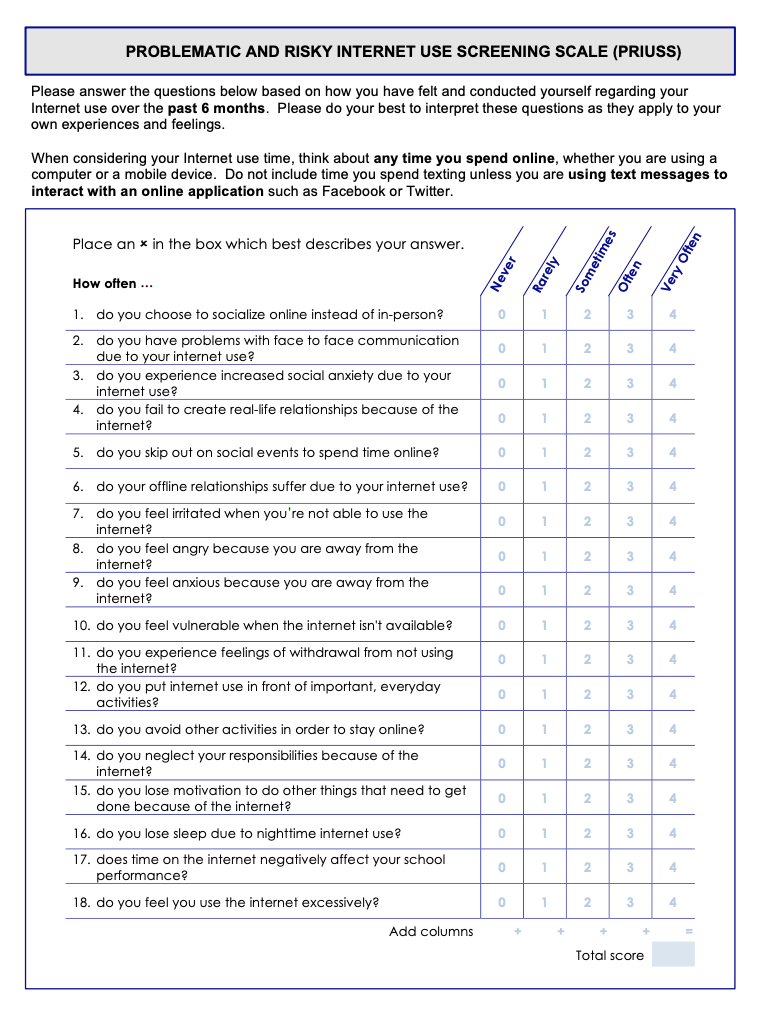
If you like to read about the science behind PRIUSS, click here to read more from the US National Library of Medicine National Institutes of Health.
Top Ten Practical Tips for Parents
- Start early. (Have conversations with your kids early on.)
- Low-risk games. (Pick things that you can easily walk away from.)
- Self-monitoring. (How much time are you actually spending on a device?)
- Digital curfew. (Give yourself time to relax away from screens.)
- Smartphone contract. (We actually think a family tech plan is more effective. Read our article about that here.)
- Daily screen-free time. (Plan ahead and make sure you have 2-3 hours of screen-free time everyday.)
- Digital holidays. (Think about going away somewhere for a few days unplugged.)
- Cultivate mindfulness. (Be aware of how and when you are using a screen.)
- Set and enforce limits. (See the quote below.)
- Be a good role model. (Something we committed to over a year ago. It takes effort!)
All of these tips are spot on and are things we’ve been writing and talking about at Better Screen Time. I loved hearing it straight from Dr. Christakis and it was a pleasure to meet him briefly.
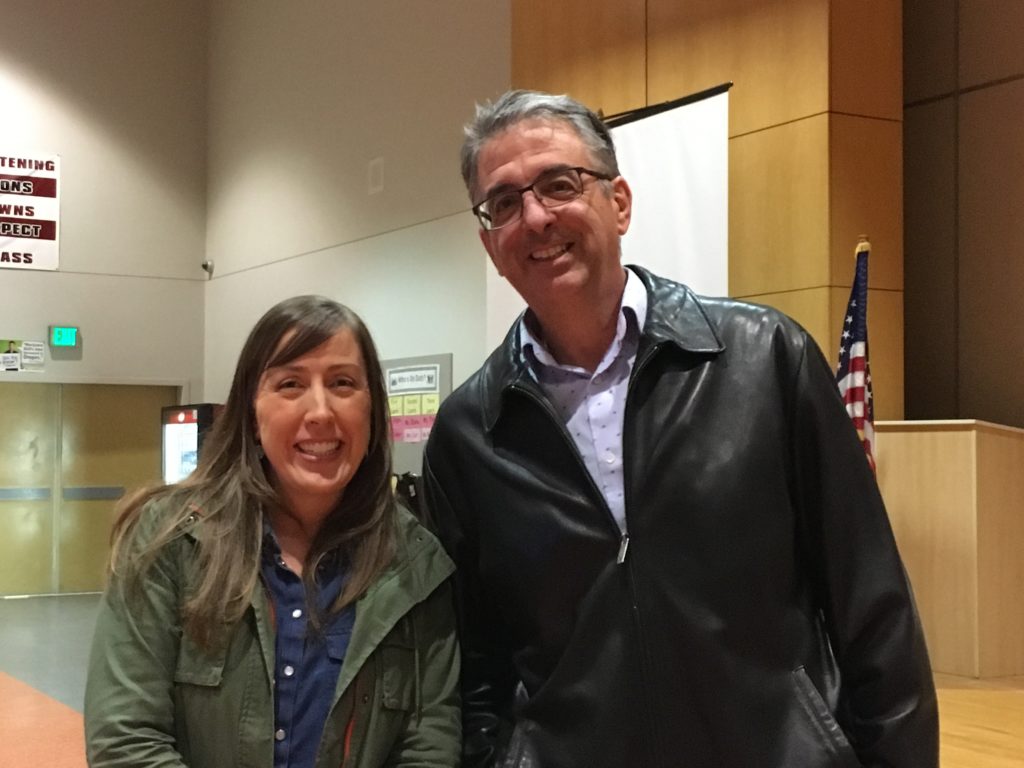
And lastly, I want to share my very favorite takeaway from the night:
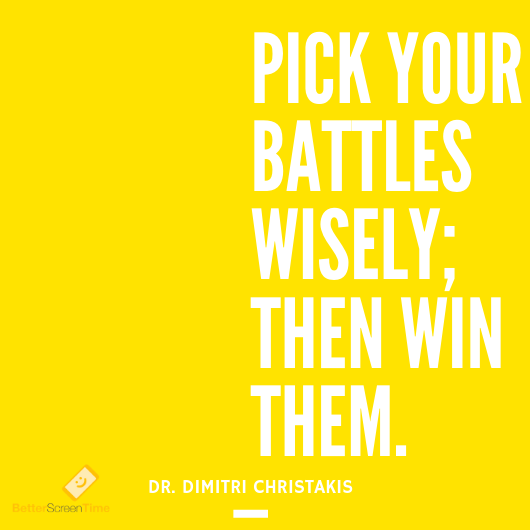
How do you pick your battles? Which ones are worth winning for you?


